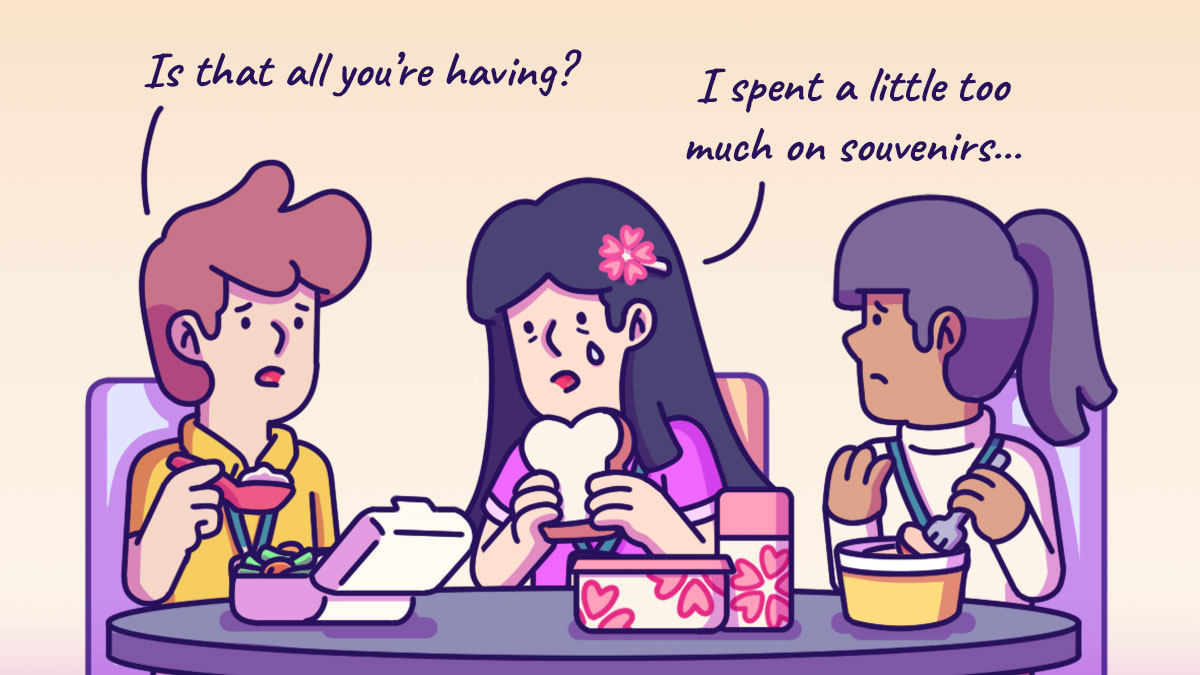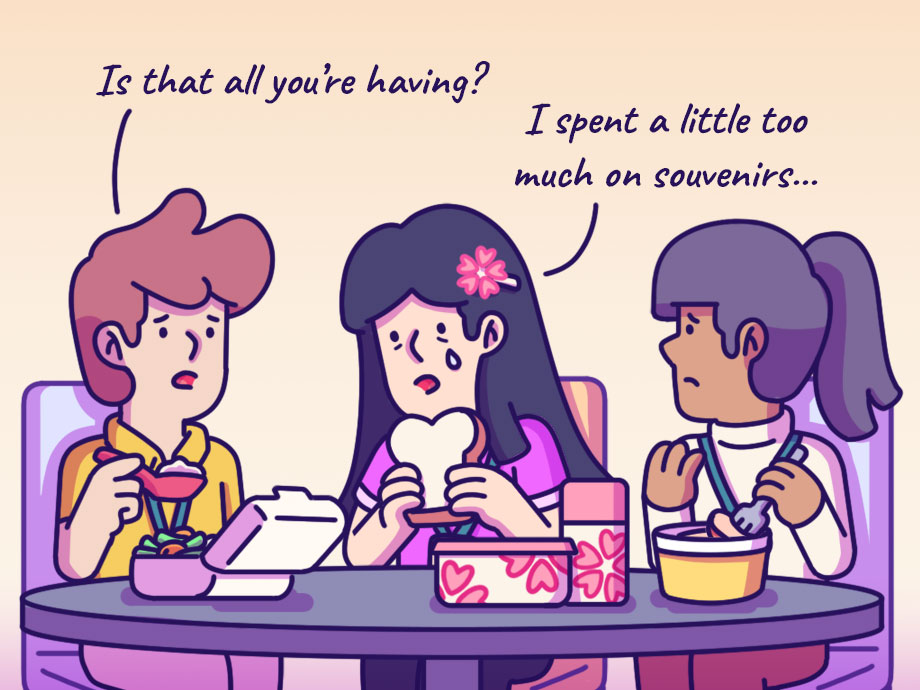Career & Education | Life | Article
Digital Nomad Diaries: A Survival Guide To Working In Japan As A Foreigner
by Cherry Wong | 28 Aug 2024

Konichiwa! If you’re reading this, chances are you’re one of the many caught up in the Japan mania.
From cute anime to rich cultural traditions, Japan’s allure is undeniable. Japan is our go-to holiday destination.
An eye-opening array of cultural norms to managing the eye-watering cost of living in major cities – surviving as a foreign worker in Japan is no walk in the cherry blossom park. Work expectations are drastically different from what we’re used to in Malaysia.
So, before you pack your bags and bid “sayonara” to the country, let’s look at what it takes to thrive in Japan as a foreign worker. This survival guide will help you navigate the exciting but often perplexing world of working in the Land of the Rising Sun.
Related
Learning Japanese is not an option
Living in Japan can feel like stepping into an alternate universe, especially if you don’t speak or read Japanese. Unlike most Western countries where English is the lingua franca, Japan presents a unique linguistic challenge. While in Malaysia, we’re used to a multilingual environment, in Japan, not many people speak English.
Imagine trying to decipher a train schedule, order food, or understand your apartment contract without knowing a word of Japanese. Suddenly, even the simplest tasks become daunting challenges. This is why learning Japanese isn’t just an option—it’s the number one survival skill.
Besides day-to-day living needs, knowing Japanese in the workplace is important for effective communication with your colleagues. Even a basic grasp of the language is a big plus point for your professional relationships and opportunities.
Don’t worry, though—you don’t need to be fluent from day one. Even knowing a few words can help a lot. You can start with common phrases and basic vocabulary can make a world of difference. As the Japanese saying goes, ‘千里の道も一歩から‘ (Sen-ri no michi mo ippo kara) – even a journey of a thousand miles begins with a single step.
Working in Japan: It’s different here
If you thought Malaysia’s work ethic was complex, prepare yourself for Japan’s corporate landscape. It’s not just a different country; it’s a whole new professional universe.
Hierarchy and respect: The backbone of Japanese offices
Japanese offices are very traditional. There’s a clear pecking order and a hierarchical structure in Japanese workplaces. Respecting your superiors isn’t just appreciated – it’s expected. You’ll need to learn “Keigo,” the art of polite speech used in professional settings. At first, it may be hard to “tone down” your opinions and speak differently, but you’ll get better with practice.
The long hours: A test of endurance
Here is the killer, brace yourself for the infamous Japanese work hours. Be prepared for long nights at the office and you are not likely paid overtime pay for the extra hours. But for all your hard work. you’ll be rewarded with “Nomikai”, the after-work socialising that’s as much a part of work culture as the job itself. As a foreigner, you might get some leeway, but joining in occasionally helps to forge better workplace friendships.
Reading between the lines: The art of indirect communication
In Japan, what’s left unsaid is often as important as what’s spoken. Japanese people don’t always say what they mean (not in a bad way but it’s out of politeness). For example, if a colleague says “might be difficult,” they’re likely giving you a polite “no.” You’ll have to read between the lines.
Adapting to this new work culture isn’t about changing who you are. It’s about adding new skills to your professional toolkit.
Balancing your yen: Navigating Japan’s high cost of living
Although Japanese companies may pay well, living in Japan, especially in metropolitan hubs like Tokyo and Osaka, is pricey. But with some savvy planning, you can make your Yen stretch further.
Housing: The big-ticket item
Housing will likely be your biggest expense. When you rent a place, you might have to pay “Reikin – key money.” It’s a one-time payment in addition to the standard deposit you pay to the landlord when signing a rental contract. It’s like a gift to the landlord, but you don’t get it back! So, when budgeting for your housing expenses, remember to factor in this uniquely Japanese tradition.
Getting around: Efficient but not cheap
Public transportation is pricier compared to Malaysia. Even discounted monthly passes in major Japanese cities are more than what you’re used to paying back home. So, don’t forget to add this when budgeting.
Healthcare: A safety net that won’t break the bank
As for healthcare, Japan has a national health insurance system that everyone, including foreigners, must join. It’s not too expensive and it’s good to have if you get sick. While it’s an added expense, you know you’ll be covered if you fall sick.
Related
Daily life: Getting used to life in Japan
At first, everyday living in Japan can be pretty complex and complicated for foreigners. There are so many rules for everything – how to hand over your business card, how to eat sushi, you name it. Don’t worry if you make mistakes. Most folks will get that you’re still learning and won’t give you a hard time.
Japan’s full of funny surprises. You’ll see super fancy toilets with more buttons than your phone, but then a lot of shops only take cash. It’s weird, right?
But here’s something that’ll feel special – Japan is super clean and safe. You can walk around at night without worrying. Maybe even cleaner! Japanese people really look down on littering. Oh, and heads up – they’re serious about trash sorting. You could get fined if you don’t do it right! It’s just one of those Japanese things you’ve got to get used to.
There are many more little nuances in Japanese daily life practices. It helps to make friends with the locals and learn the ropes. So don’t sweat the small stuff – it’s part of the charm, the everyday experience of living as the Japanese do which you don’t get as a tourist!
The fun fund: Immersing in Japanese culture without breaking the bank
After long hours at the office, you’ll want to unwind and explore the vibrant tapestry of Japanese culture. While living expenses in Japan can be high, setting aside a ‘Fun Fund’ is important. It’s not just about entertainment – it’s about cultural immersion, stress relief, and creating lasting memories. Plan your budget to include these experiences, but be smart about it:
- Look for point cards and loyalty programs at stores and restaurants
- Check online for discount coupons before heading out
- Consider investing in annual passes for frequently visited attractions
Final thoughts: Thriving, not just surviving
Working in Japan is a big adventure. You may face some tough stuff, like learning a tricky language and getting used to a different way of working. Sometimes you might feel a bit lost. But don’t worry, there’ll be plenty of amazing moments too. Imagine seeing Mount Fuji covered in snow or making friends from all over the world. You might even discover you’re great at something new, like making sushi!
The secret to having a good time in Japan is to keep an open mind. Be curious about trying new foods and learning about the culture, even if it seems weird at first. Try to learn some Japanese words – people will really appreciate it, even if you’re not perfect.
At work, be patient. It takes time to get close to your Japanese coworkers, but it’s worth it. Work can be stressful, so find ways to relax, like visiting a hot spring or walking in a beautiful park.
And most importantly budget for the high cost of living and stash away some fun money for your day-off adventures.




















